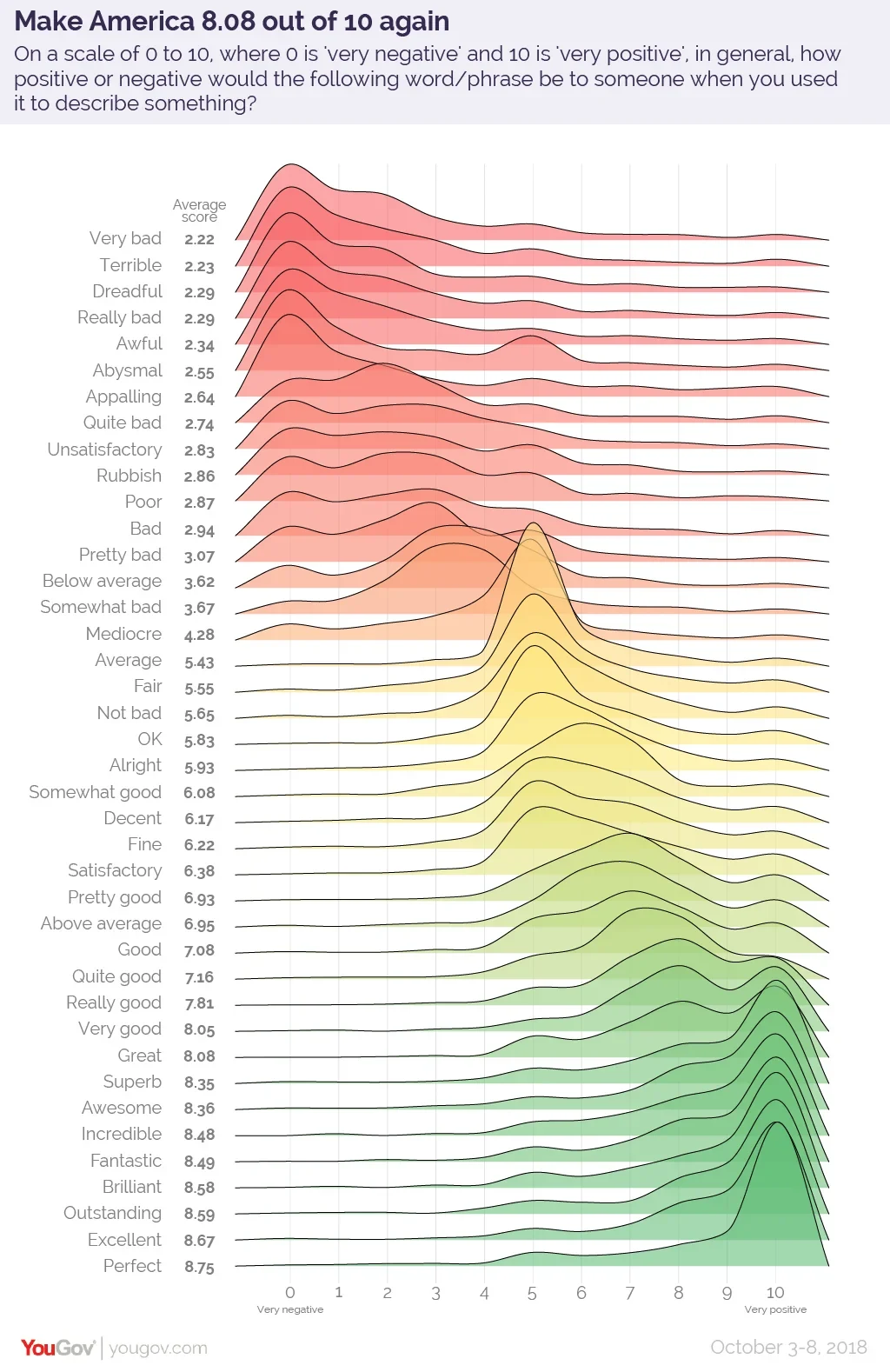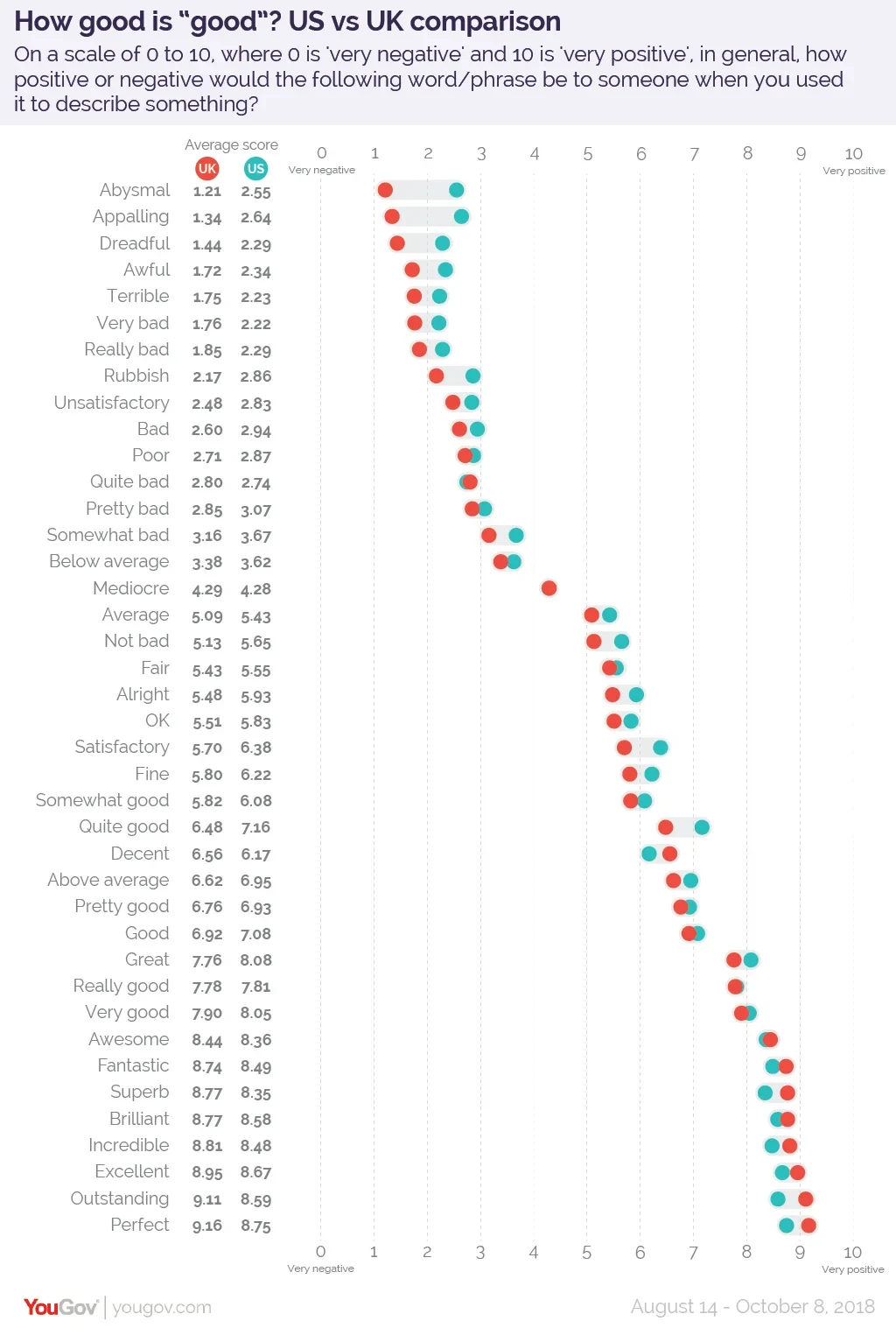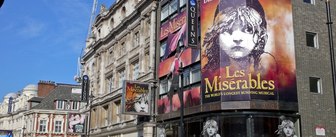A new YouGov study looks at exactly how positive and negative various descriptions are seen as being
Go shopping online and just about everything you look at will have a star rating based on reviews by previous customers. Alas, it is less easy to quantify things in such a way in day-to-day life – if, for instance, your friend was verbally describing something to you, how might you translate their description to work out a score on the star scale?
(Such knowledge might also be useful to, say, an opinion pollster that was looking to discover the best pairings of words for sentiment scales…)
Well Americans need be left in the dark no longer! A new YouGov study reveals exactly how positively and negatively the population perceives various descriptions to be.
YouGov showed respondents a selection of adjectives from a list of 24 and asked them to score each on a scale from 0-10, with 0 being “very negative” and 10 being “very positive”.

The worst way an American can describe something is “very bad”…
Of the 40 words we tested, “very bad” was seen as the most negative term, with an average score of 2.22. Only marginally less bad are “terrible” (2.23), “dreadful” (2.29) and “really bad” (also 2.29).
…while “perfect” is the highest praise, but not as good as you might expect
At the other end of the scale, “perfect” is the most positive term. However, despite the dictionary definition of the term being “as good as it is possible to be” the average score for the word was only 8.75.
Other words that came close to the most positive spot include “excellent” (8.67), “outstanding” (8.59) and “brilliant” (8.58).
“Average” provides the best middle point
Closest to the middle is “average”, although with a slightly above-average score of 5.43.
This places it not far behind “fair” (5.55). However it is worth noting that “average” is a much better word to use as a mid-point on a sentiment scale, as 55% of respondents scored the word a 5 on the scale, compared to only 38% who did for “fair”.
Two countries separated by a common language
An identical study was published by YouGov UK last week, and comparing the results reveals that the stereotype of Britons being less enthusiastic generally holds up – except for the very most positive words.
For the 31 words that scored below 8/10 in both countries, Britons gave 28 of them a lower average score than Americans did. However, for the nine highest ranked words Britons rated eight of them more positively.

The biggest differences come at the most negative end of the spectrum.
The single largest variation was over the word “abysmal”, which Britons rated 1.21 on average compared to 2.55 for Americans – a difference of 1.34 points.
A similar difference exists for “appalling”, which Americans rate 1.30 points more positively with an average rating of 2.64 compared to that of 1.34 among Britons.
The two dialects are closest to being united on “mediocre” with just a one-hundredth of a point separating Britons (4.29) and Americans (4.28).
Photo: Getty
See the full US results here and here. UK results can be found here










